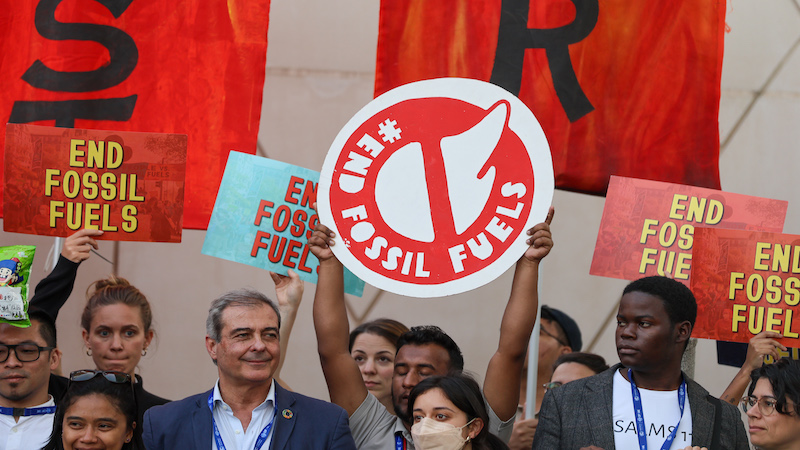The new text of a UN pact for the high-level event brings back a mention of the headline COP28 agreement
Governments have reinstated a commitment to transition away from fossil fuels in the draft of a new United Nations pact due to be adopted next month, following widespread condemnation over its previous removal.
The U-turn comes after nearly 80 Nobel prizewinners and world leaders hit out at the deletion of any references to fossil fuels in a previous version of the negotiating text for the Summit of the Future taking place in New York during this year’s UN General Assembly.
The UN has billed the high-level event as a “once-in-a-generation opportunity to reinvigorate global action” on issues including climate change, sustainable development and peace. Member states are expected to agree on an “ambitious, concise and action-oriented” pact seen as a blueprint for boosting multilateral cooperation.
In the latest draft, published on Thursday, world leaders “decide to […] transition away from fossil fuels in energy systems in a just, orderly and equitable manner, so as to achieve net zero by 2050 in keeping with the science”.
The language closely mirrors the landmark agreement struck at the COP28 climate conference in Dubai last year with the exception of a call to “accelerating action in this critical decade” which is absent from the draft.
The new Pact for the Future draft “cements the [COP28] commitment”, according to Alex Rafalowicz, executive director of the Fossil Fuel Non-Proliferation Treaty Initiative. “If the language stays, it’s clear there’s no going back. This is a first step, but declarations alone will not suffice. We need to build on this outcome with immediate, decisive action and concrete plans.”
Controversy over fossil fuels
UN Secretary-General António Guterres first proposed the Summit of the Future back in 2021 when he laid out his vision for global cooperation in the coming decades. The gathering will bring together governments, UN agencies, civil society organisations, academic institutions and the private sector on September 22 and 23.
Governments have been negotiating the text of the pact for nearly a year, with Germany and Namibia coordinating efforts as co-facilitators of the summit.
Last January they released a “zero draft” based on member states’ initial inputs and submissions from civil society, academia and the private sector. It included a reference to countries “accelerating the transition away from fossil fuels in energy systems”.
But any mention of fossil fuels disappeared from a second draft published in mid-July following another round of consultations.
Leaders are cutting fossil fuel finance – next comes unlocking clean energy for all
That prompted strong condemnation from climate action leaders. In a letter to governments, Nobel Prize laureates – including Bangladesh’s new interim leader Muhammad Yunus and former Irish President Mary Robinson – said they were “gravely concerned” about the absence of any mention of fossil fuels, which they called “one of the greatest threats facing the world today”.
The burning of coal, oil and gas is the main source of greenhouse gas emissions causing global warming. Any pathway to limit warming to the Paris Agreement goal of 1.5C requires a significant decline in the use of fossil fuels by 2050, according to the Intergovernmental Panel on Climate Change.
Backslide fears
In addition to a shift away from fossil fuels, the latest Pact for the Future draft also follows in the footsteps of the COP28 agreement in calling for an acceleration in the “development and deployment” of renewable energy and “
Read More

